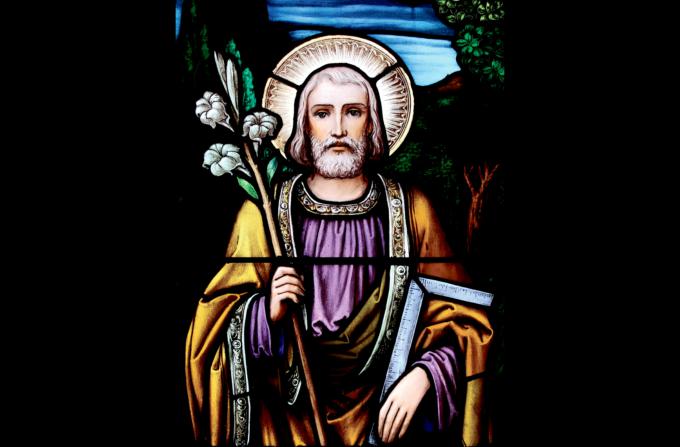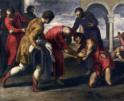
Culture
St. Joseph was head of the Holy Family. He is an example of dedicated fatherhood, especially relevant in an age like our own often bereft of exemplary good fathers.

Duncan
Our Holy Father, Pope Francis, has proclaimed this year a year of St. Joseph because it is the 150th anniversary of Blessed Pius IX declaring St. Joseph Patron of the Universal Church. He wrote a beautiful apostolic letter entitled "Corde Patris" ("With the Heart of a Father") on St. Joseph, which is well worth your reading and reflecting on.
St. Joseph is really dealt with in the Bible only in the first couple chapters of the Gospels of Mark and Luke, the so-called Infancy Narratives, though he is mentioned as a "tekton," craftsman or artisan or carpenter, a term also used of Jesus, in another place. In addition to being known by his work, he is known by his relations, his relatives: as a descendant of King David, as the true spouse of the Blessed Virgin Mary, and as the legal or foster father of Jesus, the Son of God and Savior of the World.
He is also known by his silence, for he does not say a word in the Gospels. He appears in the first chapter of St. Matthew, in the account of the birth of Jesus, as follows: "Joseph, the husband of Mary; of her was begotten Jesus, called the Christ" (v. 16). "His mother Mary had been betrothed to Joseph; but before they began to live together, it was found that she was with child -- through the Holy Spirit" (v. 18).
Matthew's account then uses the first of the adjectives used to describe Joseph, "just." "Her husband Joseph was a just man, but unwilling to expose her to public disgrace; and so he resolved to send her away quietly" (v. 19). The first of his virtues is justice, rendering to everyone, beginning with God, what was owed them. He is always upright. Here we also see his propensity to silence and to prudence and charity in not raising a stink. He suffers in silence, the strong, silent type.
That's the way his story begins, with his fiancee's surprise pregnancy, the adventure of his life, which is also the adventure of salvation history for all of us. This is the first of his sorrows, which was resolved when God's angel appeared to him in a dream, assuring him of the miraculous conception of Jesus by the Holy Spirit, and that he was to take his wife into his home, welcome the birth, and "you will call his name Jesus, for he will save his people from their sins." The one word we can safely say he would have uttered is "Jesus." His sorrow was followed by this joyful news.
And so on throughout the adventure of salvation history: seven sorrows, perhaps in imitation of the seven dolors of Mary, but each coupled with a joy, for a total of seven joys. These paired sorrows and joys are commemorated on the seven Sundays preceding his feast day on March 19.
He is a family man; he is a worker. In fact, there is another feast day of St. Joseph, since from the 1950s the Church has also observed the feast of St. Joseph the Worker on May 1, which we celebrated last Saturday. He was a manual laborer, working with his hands. Aristotle looked down on menial work. Christians cannot, because of the example of Jesus and Joseph, or for that matter, St. Paul, who was a tentmaker.
St. Joseph was head of the Holy Family. He is an example of dedicated fatherhood, especially relevant in an age like our own often bereft of exemplary good fathers. St. Josemaria Escriva used to say that we belong to the Holy Family. And, of course, being a member of the Mystical Body of Christ makes us identified with Jesus, and we were given Mary as our Mother on Mt. Calvary. St. Joseph is likewise our father. We can imitate him and ask for his help with utter confidence.
- Dwight G. Duncan is professor at UMass School of Law Dartmouth. He holds degrees in both civil and canon law.
Recent articles in the Culture & Events section
-
'Put no trust in princes'Greg Erlandson
-
The power of hopeMichael Reardon
-
Scripture Reflection for March 30, 2025, Fourth Sunday of LentDeacon Greg Kandra
-
The vibrant tapestry of the church in BostonWendy Mejia
-
Scripture Reflection for March 16, 2025, Second Sunday of LentDeacon Greg Kandra























